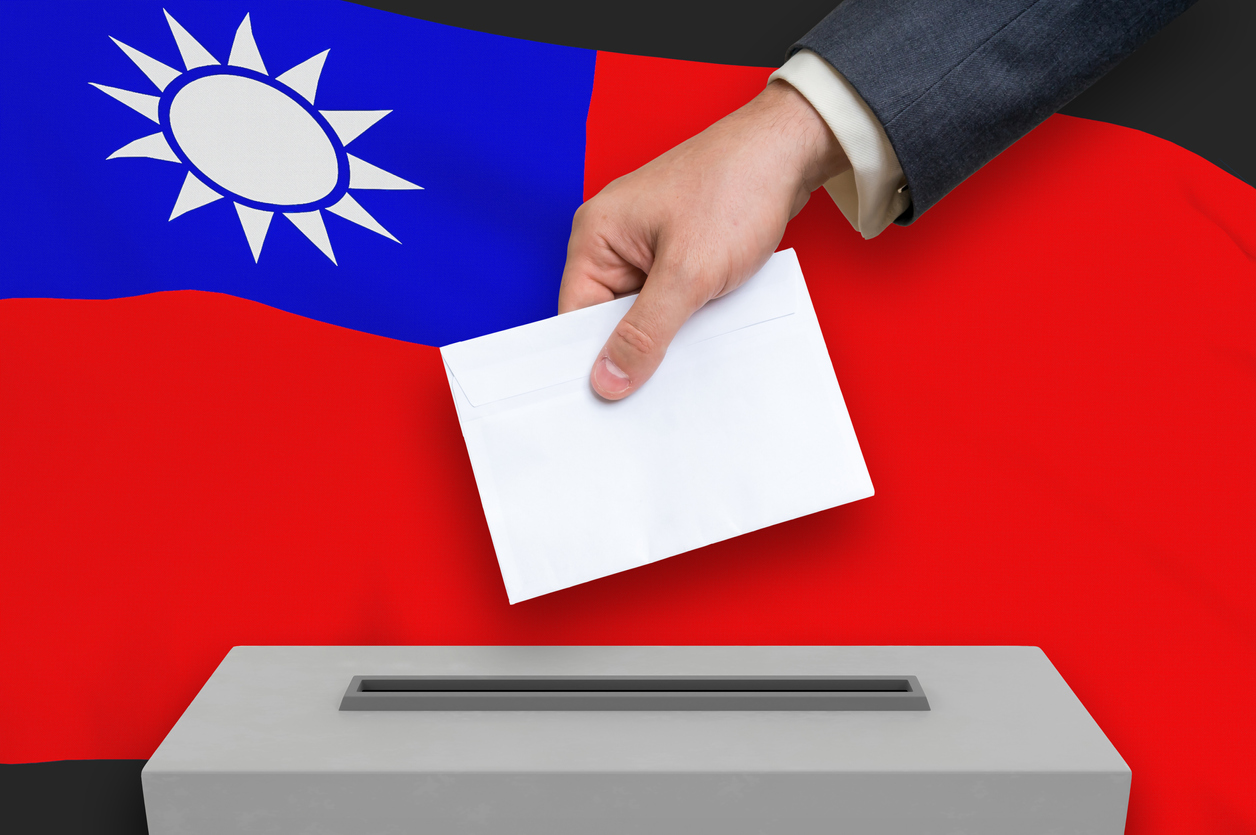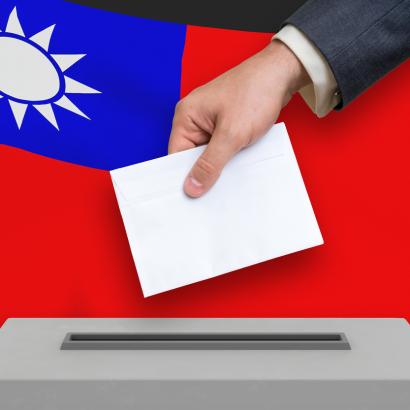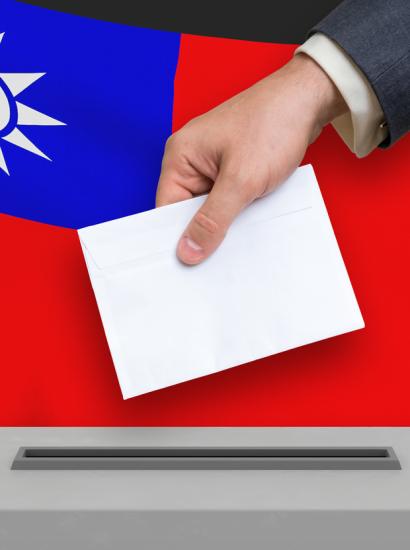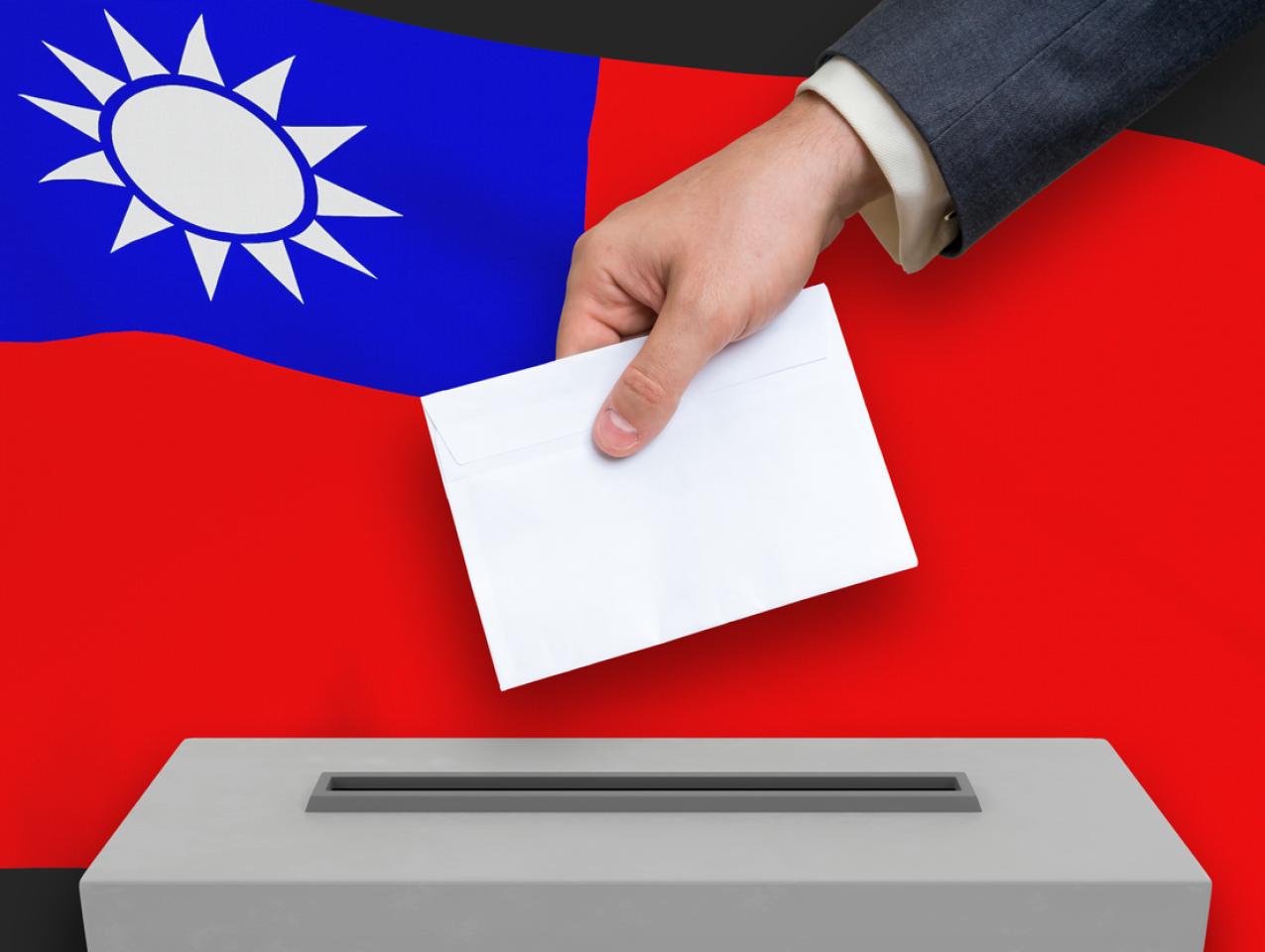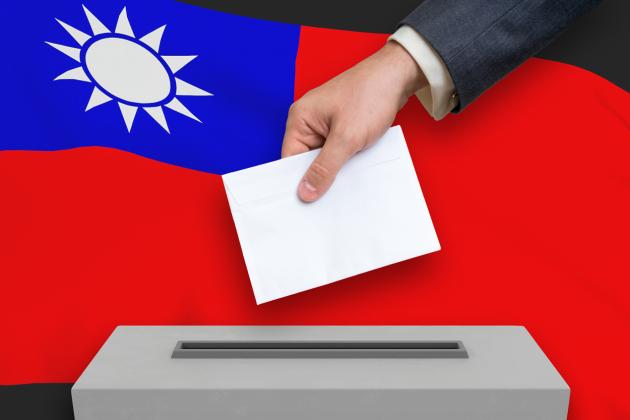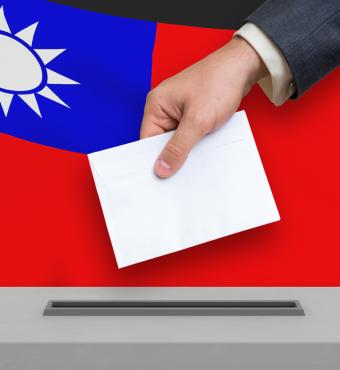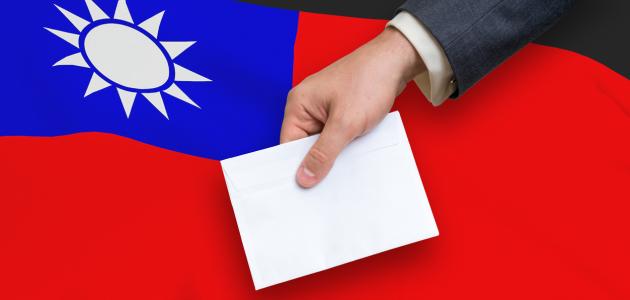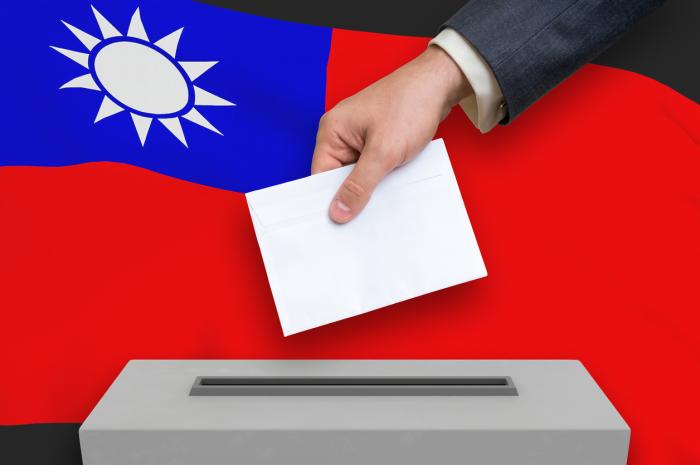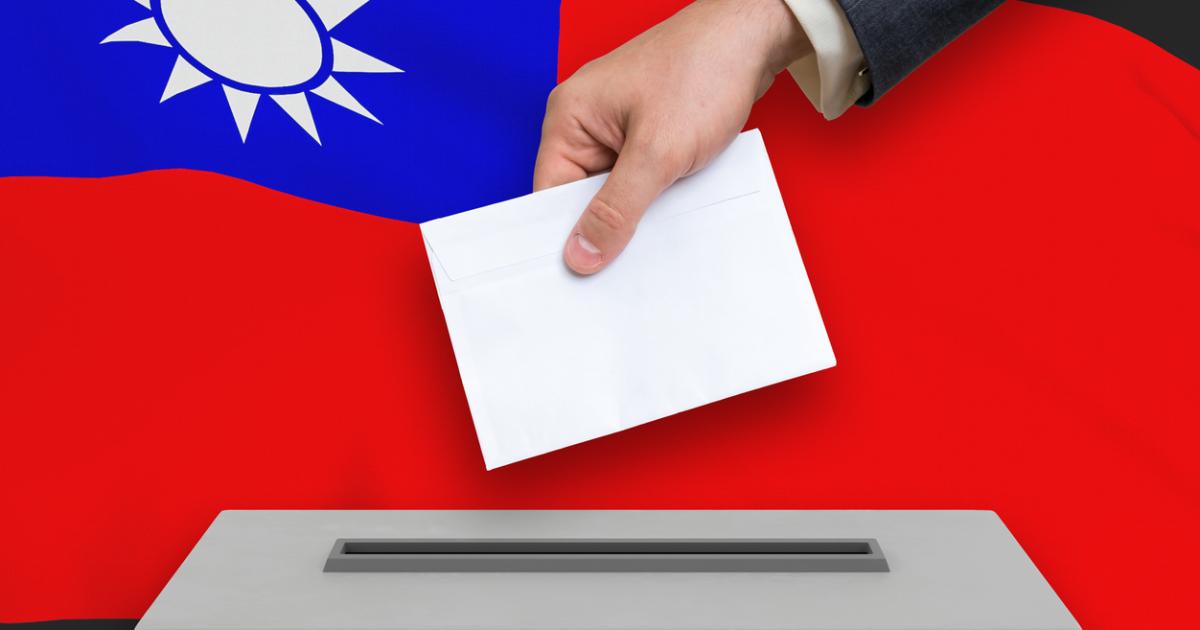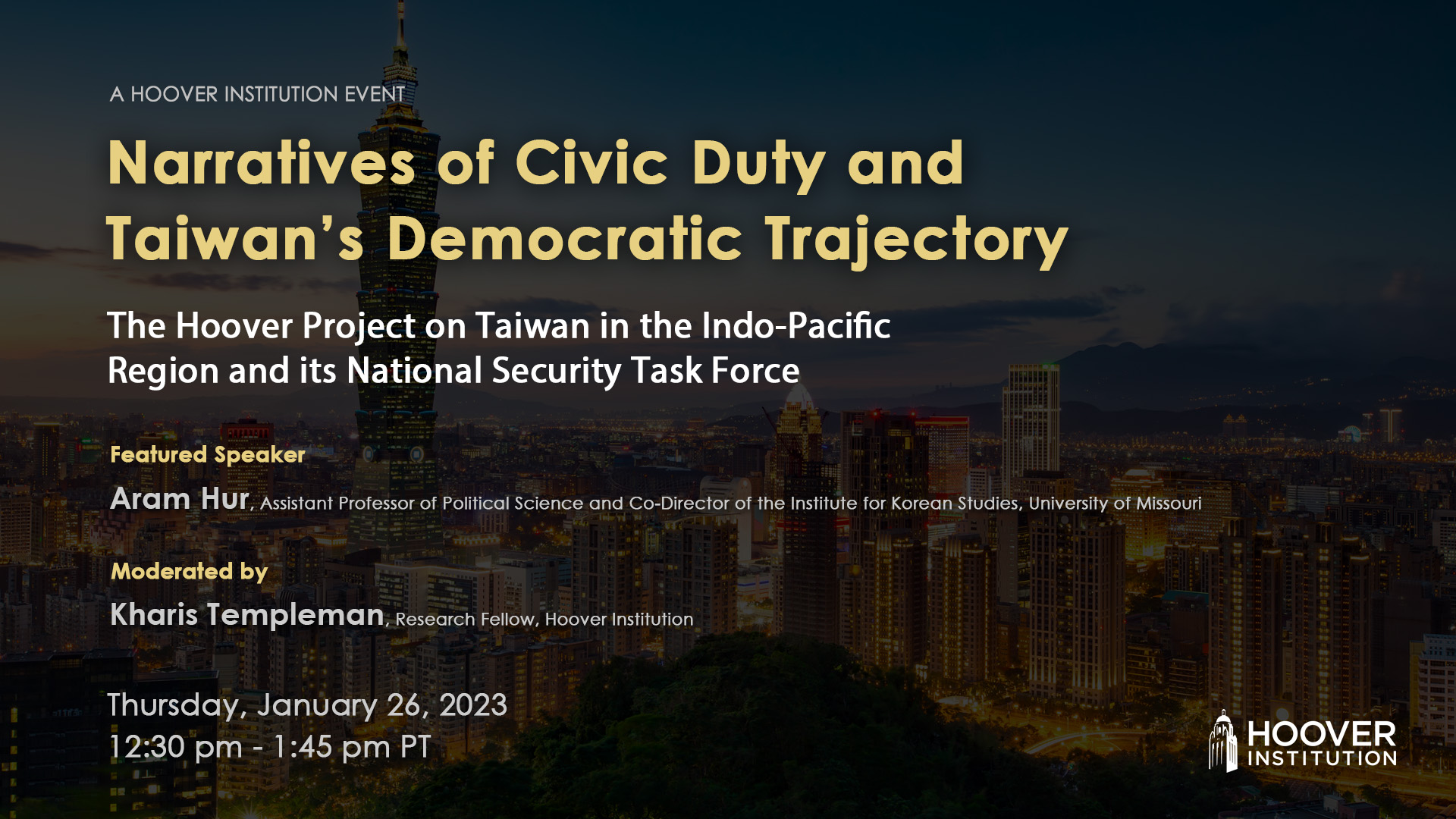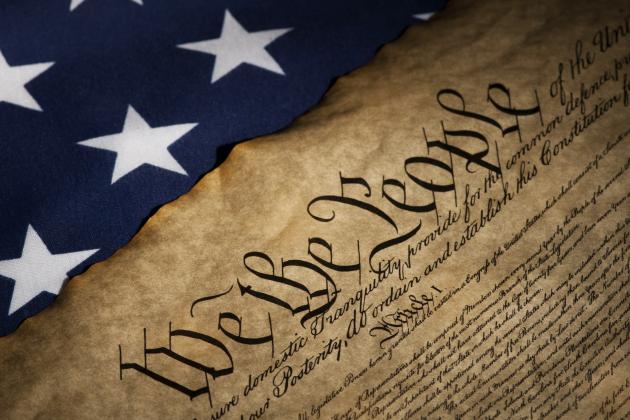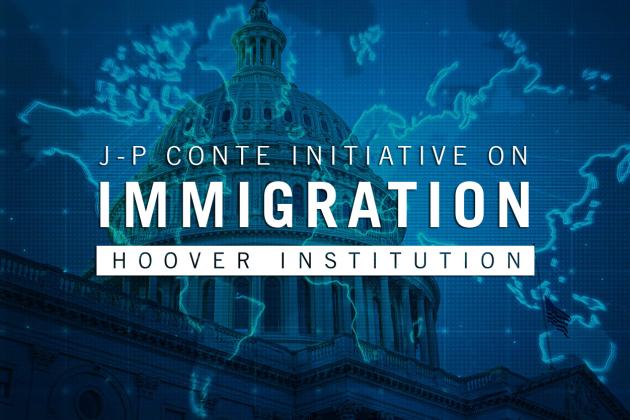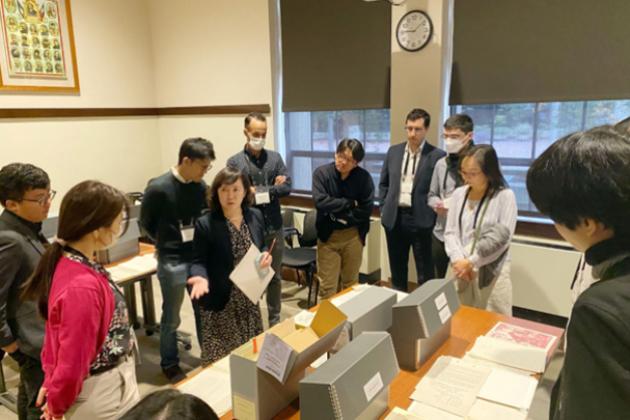
On behalf of Taiwan in the Indo-Pacific Region and its National Security Task Force the Hoover Institution held Narratives of Civic Duty and Taiwan’s Democratic Trajectory on Thursday, January 26, 2023 from 12:30 - 1:45 pm PT.
In Narratives of Civic Duty, Aram Hur investigates the impulse behind a sense of civic duty in democracies. Why do some citizens feel a responsibility to vote, pay taxes, or take up arms for one's country? Civic duty is typically seen as the result of culture or character. Rather, Hur finds that it emerges from a force long seen as detrimental to democracy: strong national attachments. National stories—the folklore of the national people—embed relational legacies with the state that can harness, stunt, or even subvert the nation’s powerful pull toward civic duty. The talk focused on the case of Taiwan and how its diverse national stories have shaped its democratic past and future.
>> Kharis Templeman: All right, well, good afternoon to the folks here in the Bay Area at Stanford or elsewhere nearby. I am Kharis Templeman. I am the Program Manager of the Project on Taiwan in the Indo-Pacific region here at the Hoover Institution at Stanford University. And it's my pleasure today to introduce our speaker, the first speaker of the winter quarter.
We are gonna have three speakers this quarter. Aram Hur is the first. We'll have Sarah Nuland next month. And then in early March, we're gonna have Caitlin Talmadge. So keep an eye out for announcements for those other events coming up soon. Today we have the pleasure of welcoming Aram back to Stanford, where she was an undergraduate.
So welcome back to the farm. After leaving here, she had kind of a journey that took her to New York and then to Princeton. I think there was a stop in Cambridge, Massachusetts at some point in there. And then she also did some field work in both Korea and Taiwan.
And some of that work led to the subject that she's gonna talk about today, Narratives of Civic Duty, How National Stories Shape Democracy in Asia. That is the title of her new book. And I will put in a plug for this book, just came out, I believe, last fall.
>> Aram Hur: November, yeah.
>> Kharis Templeman: November, so she's gonna draw from the material in that book in her talk today. And I should note, Aram is an assistant professor of political science and co-director of the Institute for Korean Studies at the University of Missouri. Her research broadly focuses on nationalism and democracy in East Asia, with a specialization in Korea and Taiwan.
And she has paid special attention in her research to issues of identity change, integration, and democratic support, both in the Korean peninsula and in Taiwan. She is the 2021 Korea Society Sherman Emerging Scholar, and she was a 2018-19 CSIS US-Korea Next Gen Scholar as well. She holds a PhD in politics from Princeton University, an MPP from the Harvard Kennedy School, and BA with honors from Stanford University.
So welcome back to the farm, and without further ado, I'll turn it over to you.
>> Aram Hur: Thank you, Kharis. Thank you, everybody, for being here. I'm just super excited to be here. A special thank you to the Hoover Institution's Project on Taiwan in the Indo-Pacific. And Kharis, big thank you for bringing me back out to my alma mater.
Today I'm going to be talking about Taiwan's democratic trajectory on the basis of my book. The title for today's talk is Narratives of Civic Duty, Taiwan's Democratic Trajectory. So by many different measures, the world appears to be in a kind of democratic recession. And there have been such claims made by Larry Diamond and others that that kind of recession has reached East Asia, particularly focusing on dynamics in South Korea and Taiwan.
And focusing on issues like extreme partisan polarization, the rise of illiberalism, and the deliberate weakening of institutional checks and balances. And these are high stakes claims. So South Korea and Taiwan are not only sort of the poster child success stories of the third wave, but they're also the most adjacent democratic checks against the resurgence of autocratic power in Asia.
And so the future stability of these democracies and understanding what undergirds that have implications that matter far beyond their own borders. And there's a lot of debate between scholars on what is the exact cause of contemporary forms of democratic backsliding. But they tend to generally agree that the last bastion against democratic breakdown lies in citizens who will act as, quote, democrats first.
So democrats first, and fill in the blank here, is partisans, classes, or ethnic members second. So what does that mean exactly, right? Well, acting as a democrat first with a small d means putting the interests of the democracy before the interests of oneself or one's group. It essentially reflects a moral obligation, a sense of moral obligation to be a good citizen, even when it's personally difficult or costly to do so, or what is more commonly known as a sense of civic duty.
Now, civic duty is something that's always been seen as a nice to have in democracies, and that traces all the way back to Tocqueville's early observations of democracy in America. But it's real critical importance to sustaining democracies, especially through hard times, so times when the usual payoffs of participation fail.
That has become more apparent with this most recent wave of backsliding. But we know a lot about the benefits of civic duty, but we know surprisingly less about its exact cause. So why do some people feel a sense of civic duty? What makes one willing to sacrifice for my democracy?
And so my recent book, Narratives of Civic Duty, tackles this question and forms the basis for this talk. And the answer, I mean, it took me a while to realize this, but the answer to my question actually lies in how I just posed it, my democracy. So democracies, or to be more specific, democratic states, are really never identity-neutral.
They are always closely associated with a particular national identity or a nationalist vision. And whether citizens see the democratic state in which they live to be a champion of the best interests of my national people turns out to be a powerful source of civic duty. Beyond what can be captured by culture, by character, or even the degree of civic education.
And the reason for that is that nations are part of a special category of communities that are, for most of us, experienced as if natural, often becoming an integral part of how we think of ourselves as people. And because of this, the nation has the power to instill moral and intrinsic obligations to care for and contribute to its welfare.
Now, I know what you're thinking, which is, we're all, I think, much more familiar with the dark and dangerous examples of that kind of national duty. How it leads to chauvinist variants of nationalism, exclusions, xenophobia, and sometimes even full blown genocides. So how does duty to the nation become politicized into this distinctly civic kind of duty that supports democracies?
And so the book centers on the connecting role that national stories play. So what are national stories? National stories, I define them as kind of the folklore of the national people. So these stories exist below the level of constitutive myths of where our national people came from, but above the level of purely personal anecdotes.
These are idiomized, almost parable-like stories about what happened to the national people over the course of history. What were our triumphs, our failures, but more importantly, who stood with us versus betrayed us in those moments of need? So they are essentially relationship stories that embed lessons learned over history about who to trust and to whom we owe our loyalty as members of this particular nation.
So, they come to define a nation's moral relationships. And the state is a key protagonist in national stories. And so the state's actions, their policy choices, its rhetoric during key moments, provide the raw content and the basis for national stories. And in turn, come to shape popularized beliefs about the moral linkage between the national people and the state in which they live.
And so where the state is seen as, as I said, portrayed as sort of a champion and defender of the national people, those people come to see the state as an object of duty and political loyalty. Now, in contrast, where the state is often portrayed as more of a betrayer or an oppressor, the same duty that people feel to their nation actually prompts them to see that state as an object of doubt rather than duty.
And so the book centers on a comparison of civic duty in Taiwan and South Korea, two otherwise very similar democracies in a lot of respects that have very different flavors of national stories, to really pin down this argument. But today I'm going to focus on the Taiwan portion of the book and how better understanding what serves as the foundation for civic duty in Taiwan.
How that tells us, it gives us a glimpse into how Taiwan's democracy might evolve in the future. So to start with the punchline, Taiwan's national stories are fragmented and largely oppositional in nature, providing a weak identity foundation for civic duty. So this is not to say that levels of civic duty are low in Taiwan, but it is to say that although the levels of civic duty might look quite high, on the surface, they rest on very tenuous identity, connections to the state.
And to understand why that is, I think we really need to go back in history here a bit, paying attention to the kinds of national stories that were produced through these experiences. So, as many of us in the room know, the Kuomintang loses the Chinese Civil War and retreats to the island with the full intent of taking back the mainland.
And so to do that, it the Kuomintang launches a very aggressive resinicization effort on the islanders, banning all kinds of local cultures, dialects, and histories that had evolved over generations of separation from the mainland. But such efforts were often very brutal, here, memorialized in the 228 incident embossing, where many islanders and internal dissidents, all at the same time, were massacred by the KMT.
And so these efforts ultimately backfired, instead of eliminating Islander identity, state repression actually stirred the beginnings of a uniquely Taiwanese sense of nation, forged in the exact counter image to the KMT state's vision of Taiwan as part of the greater Chinese nation. Now, the sort of rentier's democratization, right?
Democratization, I think, could have been a critical juncture to really rewrite the national identity of the state. But Taiwan was a classic case of what political scientists, Joseph Wong and Dan Slater have called democratization from a position of strength. So the KMT maintained its political and electoral dominance after democratization.
And so Taiwanese national stories continued, even after democratization, to focus on experiences of state exclusion, systematic bias against those of Islander descent, continuing to paint the linkage between the nation, the Taiwanese nation, and the state as something that was more oppositional than mutually supportive. So for the majority of citizens today who identify and embrace sort of a pro-Taiwanese national identity, the national stories that they have grown up on continue to frame what they still see as a heavy KMT legacy state, whose official name still remains the Republic of China, as more of an object of doubt rather than an object of civic duty.
In fact, the only group in Taiwan that has a strong linkage, to the state are probably descendants of the original Kuomintang, who still embrace the core nationalist vision of the KMT. So I know you're like, this is all great, but what does this actually look like in real life, right?
How do you actually see these things play out? Let's texturize this a little bit. So I started by looking at civic duty to serve in the military, which is obviously a hot button issue for Taiwan in recent times as China grows more aggressive. Now, this was not a surprise for Taiwan, anticipating something like this for over a decade, the Taiwanese government has tried to shift from a conscription-based model to more of a professionalized, all-volunteer model that looks like the United States to pose a more credible deterrence.
But recruitment has been a real struggle. So, the question that I was interested in was, why do most Taiwanese youth feel such little civic duty to sign up for this all-volunteer force? So, in 2013, I collected and analyzed over 40 personal narrative interviews with college students, who are the prime recruitment target for AVF.
And personal narrative interviews are quite different from a simple sort of question and answer format. I've really encouraged the subjects to share stories and memories from each critical life stage, going back all the way from what was it like growing up in your household to key experiences that they have had since then.
And so those narratives are uniquely powerful here, because they really allow me to trace the full cycle of how are national stories seeded. What do they look like? How are they then internalized, and exactly how do they come to actively frame future decisions and interactions with the state?
And I found that Taiwanese national stories tend to equate to being a good Taiwanese with counter-state citizen behaviors. So citizenship behaviors that doubt, disengage with, or even actively oppose the state, and that's seen as being a good member of the Taiwanese nation. Because my nation historically has been seen as something to be protected from, not by the state.
So I think this one quote that came up from one of these narratives perfectly captured this. Most parents in Taiwan would tell their children not to be involved in political affairs because that's how they are still alive now through the Chiang Kai-shek era. So let me show you here a sort of what I call a data map of a particular subject's personal narrative.
And you can see here, we're starting from the left top corner of how the national stories were really socialized within the home. These are not things that are officially learned in school, and by all means, not during this point in time in Taiwan. But these are kind of almost ghost stories that grandparents would tell during family holidays about what it was like to live through the Chiang Kai-Shek era, stories about in the military.
If somebody dared speak Taiwanese dialect, how they were kind of shot on the spot, and sort of the real stories of what Chiang Kai-shek did. And so, people who grow up in pro-Taiwan households grow up listening to these stories. As you can see from these examples I gave here, they're not explicitly, actually nationalistic.
They almost feel almost more anecdotal of, I heard that during my generation, this is what happened in the military when you served under the KMT military as an islander, these types of stories get seeded early on. But I think it's important to emphasize, as we move to the right top box there, that they're not blindly accepted, that they're actually internalized as these individuals grow up and have real experiences and interactions with the state that seem to confirm the original national stories.
So, this is 2013, so being disappointed in the Taiwanese government and how it dealt with China in the CSSTA trade treaties. The case of, I don't know if you remember, but Hung Chung-chiu, who died during routine military training, and being part of the massive student protests that arose because of that.
Learning once you go to university that what you had learned in high school was actually perhaps a contested history of Chiang Kai-shek and his legacy on the island. So through these real interactions, what the state does matters here, these national stories become entrenched. And as we move to the bottom right corner, they come to shape how individuals view the national identity of the state.
And in particular, when it comes to the military, this is very strong, because remember, during the Kuomintang's rule, that was a military autocratic state. And so, you have quotes here of this person saying, well, I don't know who the KMT military fights for, especially under a Minzhu government.
Do they actually protect people like us? And I've had conversations in these interviews of people saying, well, the military serves the KMT, not the state, or not even the Taiwanese people. I heard that a lot of the senior generals still have active ties to China and plan to go back to China when they get this.
And the point here is not whether or not these stories are factually correct. In fact, a lot of times they were not. The Taiwanese military has diversified a lot in terms of senior leadership to really shed this idea that it is this political arm of a particular party.
But nevertheless, the key point here is that in the way that people experience and view the military, that these beliefs are still quite strong. So going to the left bottom corner here, we're moving clockwise, right? When it comes to the decisions of whether or not you're interested in serving in the AVF, it comes down not to a matter of pay or the lack of freedom and all of that.
It really comes down to, as this person says, seen as something that is contrary to my identity. And that is why it's not a matter of the benefits. It's just I don't really see this as a matter of civic duty to go serve in this military. Now, I wanna be very, very clear here, because this is not to say that Taiwanese youth don't feel duty to their nation.
In fact, talk to any young Taiwanese and most likely will dispel that in a second. I mean, they feel tremendous duty to the Taiwanese nation. There's recent experiments by Austin Wang, who was here a couple months ago, that show significant willingness to defend Taiwan against China in the event of a military attack, even when you take away the condition of potential US involvement.
So there's tremendous duty to the nation. It's really that this deep duty to the nation doesn't translate into widespread civic duty to serve in the state's military. And I think this conversation between two friends, which constitutes the opening of this particular chapter in the book, really spells out this disconnect perfectly.
So, I was sitting with them when they were having lunch, and they were talking about plans for what they were gonna do after graduation. And then I brought up the issue of IVF and whether or not they consider that as an option. And so, the first friend says, well, when I graduate, I'll be able to have a better job, higher pay in the military.
I might get hurt. I have to listen to orders. And if China attacks, we can't win, it's impossible. So why would I give up my freedom and my life for that? Said one friend. And at this point, the other friend, who was sitting to my right, intervened and said, well, but I'll still fight if that happens.
I don't wanna die, obviously, but all of my family's here, and Taiwan, this island is my home, and if I don't protect it, then who will? But serving in the military is different, right? I don't know who the military fights for. Who does it really protect? Us Taiwanese is what he said.
So, you see here already sort of this boundary making of the Taiwanese nation as something that is disconnected to and largely divorced from the actual State of Taiwan. And the stakes of this disconnect are incredibly high, given the challenges that Taiwan faces in Asia's rapidly evolving landscape. So, there's the obvious, I think, security challenges from China, but they're also perhaps a little bit less obvious.
But I think just as significant internal demographic challenges that are really starting to build from declining fertility. And what that means is this impending dependence on an influx of migration and sort of how that can destabilize the state from within. So, there are these various threats to stability, all of which require widespread civic duty on the part of citizens to donate their time, to be willing to sacrifice, in terms of higher taxes, etc, to really get through.
Now, it's neither, I think, possible nor ethical to simulate that kind of a crisis. But in this particular study, I leveraged a shared memory of one such crisis in Taiwan, which is the 921 Earthquake, this was back in 1999, to see how effective would national appeals to civic duty be in a crisis context, right?
So Taiwan, the island is literally on the edge of two tectonic plates, and so it's a hotbed for earthquake activity. But 921, the Jiji earthquake, is still the worst in its modern history, both in terms of the size of the damage and the number of fatalities. So it's something that's very much part of the Taiwanese consciousness and memory.
I recruited 1004 subjects from National Chengchi University's Election Studies Center's Online Panel to run the survey experiment to see how effective national appeals would be here. Now, the design is actually a quite simple news frame treatment design. So the control group read a neutral frame news article about 921 that simply focused on the facts.
Number of fatalities, size of damage, what time did it strike, in what region, things like that, very descriptive facts about the crisis. The treatment group read a national obligation frame news article that really focused on stories and examples of the national people coming together, sacrificing for each other in the face of crisis.
You see the quote, any person under that rubble is my own father, mother, child. There's also stories about citizens doing financial sacrifices and making donations in order to help with relief efforts. And the aim here was really to prime a sense of duty to the nation as kind of a top of mind motivation.
After reading respective news articles, all of the subjects were then asked whether or not they felt a sense of civic duty to contribute to the state's current efforts for earthquake prevention and relief. Either through making a small donation or volunteering, signing up to be a volunteer in the event of a crisis, right?
Do you feel a civic duty to contribute to those state efforts? And these are the results. These results, I think, are actually quite sobering. So let me walk you through them. So on average, when everybody is pooled together, right, we see that it's absolutely just a clean null effect here, right?
So reading the news article emphasizing obligation to nation and all that, and then asking, do you think it's a civic duty to donate to future prevention efforts being spearheaded by the state currently? Does nothing to actually move these people to say, I feel more civic duty, compared to the control condition, which read simply a very descriptive article with no appeal to the nation, right?
And this null effect is especially robust for the pro-Taiwanese identifiers in this group, which are the Taiwan nationalists. And the group that I call New Taiwanese is sort of the younger generation, but for the intents of this talk, they fall into the same category of holding more pro-Taiwan views.
And so I want you to think about this result for a second and sit with it for a bit, cuz what this means is that even for an ever-present threat to the island, when it hits, it affects everybody on the island quite indiscriminately. Calls to help the state or contribute to the state efforts in the name of nation basically falls on deaf ears.
Less than half of the pro-Taiwan identifiers expressed a sense of civic duty to contribute to those efforts. And the only group here that does show any kind of responsiveness is the rapidly shrinking minority of citizens who still identify with sort of the original KMT vision of the idea of a singular Chinese nation and Taiwan as part of that.
Now, I should note for the more technically inclined audience that this null effect is not due to a failed or weak treatment. So I had a manipulation check there that everybody answered, which was after reading the news article, how closer do you feel to my Taiwan, right, to your idea of Taiwan?
And that boost and that feeling of closeness was exactly, actually, the same across both pro-Taiwan and pro-China identifiers. And so it's not that the treatment didn't work. It's that my Taiwan is imagined quite differently across these two different groups and sustained by very different kinds of national stories that paint different linkages to the state.
So, you might say, well, maybe you found these null effects because you're setting the bar too high here with a potentially real crisis context. And so I wanna show you evidence that the same patterns hold when we also look at more ordinary forms of civic duty. Such as civic duty to vote and civic duty to not quite pay taxes, but not cheat on taxes, more specifically here.
These data are from a nationally weighted online sample, and I find that, again, strength of national identification or national attachment to my Taiwan is exactly how I asked it. Essentially has no effect on civic duty for the pro-Taiwan identifiers. And again, it's the minority, a very rapidly shrinking minority of China identifiers for which issues any kind of effect there.
So Taiwan is still one of the most surprising, I think, success stories of the third wave of democratization. And what the book shows is that its democratic triumphs have really been in spite of, not because of strong identity foundations to civic duty. And I think there are two main takeaways from the book.
So the first is, most debates right now on Taiwan's democratic future tend to focus on external factors, like China's military aggressions or the sustainability of strategic ambiguity on the side of the US. It's almost as if there's very little about Taiwan's democracy itself that speaks to its future.
And I hope that this talk urges policymakers, especially within Taiwan, but also outside, to pay more attention to the internal identity dynamics that serve as really the most, I think, direct civic foundations for its own democratic resilience. The second point is when people do focus on domestic factors in Taiwan, they tend to focus primarily on the military.
And Michael Brown, who's at Hoover, just had a piece on this in foreign affairs, talking about military reform, and this is incredibly important. I mean, the most tangible and devastating threat would be a military confrontation. But I think it's also equally urgent that both partisans factions in Taiwan really unite and rally behind a new, singular vision of what Taiwan is as a nation.
And yes, there's been a lot of convergence towards the status quo and keeping that. But that's hardly a very inspiring nationalist vision, right? It shows what Taiwan stands against, but it doesn't really show what Taiwan as a nation stands for. And so I think party leaders, cultural leaders really need to focus on doing the imaginative work of finding that common foundation that can really unite state and nation going forward.
And, in fact, I would say my research findings show that establishing that strong linkage between nation and state is, in a sense, a necessary ingredient that precedes successful military reforms. Without that, it's hard to ask citizens to sacrifice their time, potentially their lives, in something that's very potentially high-conflict.
And I think a real window is opening in Taiwan to do this. So, full disclosure, my data were collected in 2013. Safe to say a lot has happened since then, right? And I think that DPP's return during this really critical moment for Taiwan as it deals with the challenges of COVID, the demographic challenge, and sort of the heating up of cross-state relations with China.
That the timing of the DPP's return during that critical moment should really be seen, I think, as a window of opportunity to rebrand and rewrite the national identity of the state. And President Tsai has really tried to do this. She has spent a lot of time reframing the DPP's nationalist vision as one that is explicitly based on Taiwan's democratic identity.
Now, to be fair, she's not the first leader to try to do this. I mean, the first leader, we would probably go back to Lee Teng-Hui, who really tried to cultivate this democratic civic vision of a Taiwanese national identity. But I think two big factors actually make it likely that this reframing is going to resonate.
So the first is a generational shift in the electorate. So the born independent generation is really now coming into age and slowly eating up and getting close to becoming the new majority of the electoral base. So there's a real moment here of this reframing of Taiwan in a democratic sense to hit home.
There's also this geopolitical shift, as China is growing more aggressive in the region, to see China as a common threat to the survival of Taiwan's democracy. Now, I want to be careful here, because there are, I think, some real risks to defining the cross-strait conflict as one between democracy and autocracy in the region.
I think that ties hands in a way that can actually promote more devastating conflict rather than pacify relations. So there's some risk here, but, I think, internally for kind of revitalizing the civic foundations of Taiwan's democracy, that this could be a very smart move on the part of Tsai, and on the part of the DPP.
Now, I think the local elections just showed that it's important to remember that internalizing and rewriting national stories is not all rhetoric. That these national stories are based on state actions, but they're also based on real lived experiences of the national people under that state. So you have to put policy behind the rhetoric.
There needs to be real policy followthrough on these new sort of principles of identity. So there's a lot of work still to be done. And it still, I think, remains to be seen whether or not Taiwan can really make this shift going forward. But I think if there's any one takeaway from the book, it's that civic duty is not something that's preordained by culture or even character of the people as it's often thought of.
It's really something that's rooted in national identity politics. So it's something that can be lost and mismanaged, but also gained again and really fostered conscientiously. And so that's sort of the optimistic note that I wanna end on for today's talk. Thank you so much.
>> Kharis Templeman: Thank you, Aram.
We have some questions online, and I invite questions from our in-person audience as well. That was a masterful presentation, the book is much more than just that bit on Taiwan. She's got a comparative case of South Korea that she hasn't talked about at all yet, which would be interesting to hear you draw out in the Q&A here.
But I want to exercise Chair's prerogative a little bit here and pick up on the conclusion you made. And my reading of the book, actually, was that this is an optimistic frame of nationalism. That you can read this as, national identity can actually help build civic ties, you have this line, consciously through policies, leadership, and service programs.
And so, two-parter here, is the current administration doing that, do you think? Do you think they've been sufficiently effective at that sort of optimistic vision of how to build civic duty? And if not, then what could they, or we're gonna have an election in a year, what should the next administration in Taiwan do to try to foster stronger civic duty among Taiwanese?
>> Aram Hur: Yeah, I mean, it really comes down to fostering that strong unifying tie between the identity of the national people, how they think about that currently, and the identity that's embedded in the state. And so Taiwan's primary challenge, I think, will be really bridging the gap of these two partisan factions that have been historically defined by their mutually exclusive nationalist visions.
I think that the DPP under Tsai's leadership has begun that work of reframing the party's position in a way that is inclusive and urgently tangible for all citizens of Taiwan. But I think there's a long way to go to really entrenching that identity, to reframe, for instance, serving in the AVF.
That effort has really focused on, can we give more pay, or can we give more flexible schedules? And it's really been approached as almost a business of, can we give enough pull factors and benefits to encourage youth to join? And it's largely failed. And I think reframing sort of military service as one that you would sign up for, not because it's a beneficial career, but as something that you would do to defend Taiwan's democracy is a different reframing strategy.
That I think could go a long way, especially given the political climate right now, to encourage more actions of civic duty. There's a lot of deep work that probably needs to be done in terms of the educational curriculum, building more of these. I showed that in these interviews, a lot of people associated being a good Taiwanese as keeping a check on the state and going out to protest when you feel that the state is doing something a little bit awry.
To really reframe that would mean institutionalizing some kind of public service components as part of the mandatory education curriculum. Such that being of service to the state is seen as something that's actually congruent with being a good Taiwanese moving forward. I'm not giving you one-line answer here, cuz it's a really complicated, I think, sequencing of policy mandates that would need to happen to start to really generate a fresh generation of different kinds of national stories.
And these things don't happen over the course of one electoral cycle, but I do think that Taiwan is starting to go down the right path of reinstating that linkage, something that was severed, really, with the Kuomintang's military rule.
>> Kharis Templeman: Great, questions from our in-person audience? Yeah, Max?
>> Max: Hi, thank you so much again for this talk, super informative.
I was more wondering about, given increasing PRC aggression near Taiwan, with more occurring intrusions by, for example, PRC planes into Taiwanese airspace. Do you think it is still possible for a greater commitment of Taiwanese citizens or a greater attachment by Taiwanese citizens to continue already existing institutions, say, of, for example, the ROC military.
Or that more new institutions or reshaped institutions, institutions more focused on the nation, rather than being attached to the state, need to be developed in order to tackle some of the more external threats?
>> Aram Hur: Well, I think the ROC military is a state institution, obviously, but had a very strong national identity back in the day.
And I think it's taken generational turnover, despite active efforts to sort of diversify the background of the military to shed that perception. So it really comes down to the perception. So I think it's incredibly hard to create brand new institutions, but I think there can be a lot of work by political leaders to reframe motivations to serve in the military.
What the military stands for, the values of the military, in such a way that it starts to really shift popular perceptions of what national identity does a state embrace. But as I said, it doesn't stop with just saying that democracy is now the new foundation for Taiwanese nationalism, it has to go deeper than that.
So I think there is, yes, I think there is still room that's actually become accelerated and helped by China's recent aggressions to make that claim and make it credible and have it actually resonate with the broad citizenry. Thank you for the great talk. I think I have a few questions, but I would just say one that I think initially when I come to this talk, the kind of the first question that popped in my mind.
>> Audience #2: And I really would like your insight on more of a comparison between the Korea side and Taiwan side. So I think you mentioned the linkage between citizens and the state will greatly kinda like, if we can unite the people, then there will be a stronger narrative and a stronger potential deterrence force to the other state.
But the two of the case I can think about that is similar in Taiwan situation, one is Israel and one is Korea. And for this linkage that unites all citizens and people, I think for Israeli sense, I can picture it more clearly, because the duty to serve in the military, it's regardless of gender, it's every citizen that has to serve in the state.
But whereas in Korea and in Taiwan, it's only the male that has to serve in the military. So I personally kinda when I was in, not an argument, but more of a debate with some other people. One of the counter-argument that they often give me is I'm a woman, I cannot comment on certain things because I don't have to serve in the military.
I'm not in their shoes. I'm particularly interested in South Korea, does this impact any kinda like the national narratives or the national stories or the people's? Kinda does it hurt the linkage between state and the people, or does it doesn't really matter. There are some other kind of traditional cultural support that this can still work pretty good.
>> Aram Hur: That's a fascinating question. I mean, I think it's fair to say that Korean nationalism is very much, and wasn't always this way, but it's very much rooted in this idea of a singular bloodline of the Minzhu narrative. Again, I wanna emphasize that that was not always the case.
It was really a survival response to Japanese colonialism, that you could lose political authority. But if the nation, its continuity was in the people and continuing the bloodline, that that would be, in a sense, sort of separate and kept disconnected from whoever was actually had the political authority.
So as a way of saying that the Korean nation would continue even under colonialism. And it explains a lot of sort of more sort of ethnic-based attitudes that contemporary South Koreans tend to hold. Now, what I wanna say to your question is, it is a very masculine idea of this continuity of the bloodline idea, it's a patriarchal nationalist vision.
Now, I do wanna say that in AVF, women can serve, too. They're not in combat roles, but there are actually quite a few number of women who do go into AVF because they do see it as a reliable, pretty well paying, secure job. But they're not in combat roles, one could say, it's not the same level of sacrifice or whatnot.
But I think every kind of sacrifice in the name of the state, I don't think there's a high and low to that. In fact, democracies are built on all sorts of big and small sacrifices, not just as big as going into war and risking one's life. But showing religiously up to vote, despite whatever it is going on in your personal life, takes willful commitment to do that.
And so, where does the gender thing fall here? I think actually I wanna kinda focus on Korea on that part. I think there is a real, really interesting, troubling gender dynamic that is arising right now among the younger generation. This relates to the fertility rate decline. That the women have joined the workforce, have become very successful.
And they see no incentive to really get married and have children anymore. There's a big backlash right now of young men who have, essentially, because of that, been edged out of the marriage market, a growing resentment. And this is exacerbated by high levels of income inequality, as in the younger generation in the twenties to thirties, the unemployment rate there has been just under 10% for the past ten years.
Or even longer than that, maybe, it's always hovered around 7 to 8%, that is very high. And a lot of these young men are starting to look at the women as, potentially, the cause for this. I think for both Taiwan and South Korea, especially as both countries deal with an increased need for migration.
And most of that migration is going to initially come from migrant wives. So there's a big female component here of the role that women play in continuing through the national vision or the national identity. So I think it's something that really needs to be maneuvered carefully and addressed explicitly.
So if the men serve in the military, perhaps there is a sort of parallel thing that women can do as part of, again, mandatory education, public education, that's sort of a public service program. That continues to build strong female linkages, identity linkages, into the national community. And I think that's something that, actually, isn't talked about enough in Asian societies.
And in particular, in understanding how the gender dynamic intersects with nationalism. So I think it's something that's super important. We're seeing the cracks of that start to happen in South Korea. And all I can say, based on what I know, is that those cracks will continue to grow further as we get an influx of migrant wives who threaten the already tenuous role that women play in the continuation of the national story in these places.
>> Kharis Templeman: Yes, we'll go here.
>> Audience #3: Thank you, professor, for your talk. I had a question, as a male Taiwanese citizen, I'm required to serve around a year. I had a question mostly around how does the role of conscription in Taiwanese society, especially as President Tsai has recently announced that they're extending conscription from six months to a year, how does that affect public perception of the military?
And are there potentially further expansion of that conscription? Because I know my grandfather had to serve, like, two years or more. I'm kind of curious.
>> Aram Hur: So Tsai has reversed a trend of continuing to cut the length of conscription. And I think there's obvious reasons to why she has backpedaled that.
So really interesting, when I did the same narrative interviews in South Korea. And in the book, South Korea is sort of the case where, because of this ethnic, bloodline master narrative, the national stories tend to paint the state as almost an extension of the national family. So almost like inseparable from the national people.
Now, I think a lot of that is fraying recently, because, again, the actions of the state matter, right? But to go to your question, when I did these exact same narrative interviews, I was speaking to, actually, overseas Koreans who do have the same legal obligation, but, essentially, you can age out of that obligation.
So a lot of them choose to age out for practical reasons, or it really threatens their permanent residency status abroad if they leave for two years. And so they choose to, essentially, either renounce their citizenship. But essentially, I talked to these overseas Koreans who had decided to come back and serve.
And what's fascinatingly different about those conversations versus the one I had with Taiwanese college students was that these Korean overseas youth would say things like, well, my father and grandfather served in the Korean military. And you don't become a real Korean man until you serve in the military.
And they talk about their decision. Not as, well, I did it cuz I wanted to come and work back in Korea. But it's really, they say, this is really awkward for me to even talk about this as something to be praised. Because I see it as somebody who speaks Korean, who has Korean blood flowing through my veins, that this is a natural rite of passage to becoming a, quote, unquote, real Korean man.
And where did they get that? It's not like they were taught that in school. Most of them didn't go to school in Korea. They were taught that by their fathers and their fathers before that. So an entirely different view of military service and the intro role that plays in continuing this nation state linkage.
Now, there's real historical reasons why those national stories came to be. I mean, cuz Korea after the war was in a really highly uncertain security context. And so having that strong base was a real thing that the state cared about. And it effectively inculcated sort of these types of ideas.
But it's such a contrast, right, to the primary way that young Taiwanese youth think about military service as like, this is something that I gotta go do. Like, when am I gonna fit it into my very promising career? It's sort of seen as almost like a nuisance that you have to go do this.
And so, again, going back to, I think, the first question, how do you reframe these deeply embedded views about what the military stands for, what the ROC military stands for? What are the values that define it? Why do we do, why do we have conscription? Having these dialogues and starting to have a generation of stories who served in the military who say, you know what?
I actually had a really positive experience in the military, because we talked about all these things. It made me feel like I was a real Taiwanese, those types of national stories to start to filter down into the next generation. I think that is actually what's really important, rather than necessarily the length of the conscription and service.
And so, that would be my answer to your question is, there needs to be, I think, really conscientious reframing of these acts of state service in Taiwan.
>> Audience #4: Thank you so much for the talk. Given the fact that there is a strong self defense sentiment for Taiwanese, but a bad perception of the military.
Do you think it makes sense for the government to amp up their support of civilian defense organizations like Ford Alliance and like Kuma Academy potentially as a way to heal the divide?
>> Aram Hur: That's a great question.
>> Kharis Templeman: Actually, let me, there's a question online that's very similar to that.
It asks, because the military is so closely associated with the ROC state, and potentially the KMT. Is there a kind of much greater latent support for civil defense or territorial defense? Or community organizations that are focused on saving the nation?
>> Aram Hur: Yeah, so I'm gonna say something that's maybe a little bit controversial here.
Which is that I think that those actually detract from the deeper mission, the deeper issue of why do you have this problem in the first place. And not to diminish the very important work that those organizations are doing. And they're providing an outlet for this disconnect to materialize in a positive way.
So I think those things are all really good things. I do think that they are more surface-level solutions to the deeper challenge that Taiwanese democracy faces. Which is that it has this fractured history between nation and state. And I think saying that those organizations would somehow be a stand-in for a strong state military.
I think that's a very risky claim to make, because at the end of the day, right? It's the state military that has the international alliances and etc to actually put up a credible deterrence. The goal here is not to get into a cross-strait conflict. From my point of view, I think those organizations are actually more of a takeaway from the harder work.
And I think the more important structural work, which is healing that broken linkage between nation and state. And I do not think that they would be an effective stand-in, necessarily, for a really strongly unified and motivated state military.
>> Audience #5: Yeah, very interesting talk, thank you. You know this better than probably anybody in this room, that all those opinions and the surveys.
And people's understanding, not born in vacuum, right? So it's based on the information they got. So I understand your data was from about ten years ago.
>> Aram Hur: Yeah.
>> Audience #5: Where do you see and how do you see the disinformation coming to play? Meaning that the CCP has a pretty strong grasp on the information flow, especially in the Chinese media, right?
Taiwanese government has some kind of control, like CTi's, they basically just cut it off. Do you see the danger or solutions in that information domain?
>> Aram Hur: I definitely see a real danger to that, especially because, given the nature of challenges that Taiwan will face going forward. And right now, top of mind is the cross-strait relations.
But as I said, there's another issue growing rapidly, which is the fertility decline. And eventually a population decline that's going to necessitate a more formalized channel of migration into Taiwan. That is going to cause a lot of anxiety within the national community of limited resources. Where are they gonna go?
Who is the state going to prioritize? And so, this is not unique to Taiwan, obviously, this is something that's happening in a lot of the leading host democracies across the world, Germany, the United States. And there's a lot of room there. It creates a dangerous vacuum for these kinds of misinformation campaigns.
Or even, I think, kind of would be demagogue political entrepreneurs to swoop in and say. Well, I'll give you a good definition of what it means to be a real Taiwanese in a way that alienates the migrants. Which is, in the long term, just a risky gamble because these societies will need those migrants to survive.
And so I definitely see that being a real problem, not just through the misinformation campaign coming from the CCP. But even internally within Taiwan, of the rise of somebody like Orban. Or who says we have this sort of contested idea of what Taiwan's nationalism means. So let me come up with a definition that satisfies a lot of these disgruntled groups right now.
Income inequality is bad, we have a real security conflict coming on. We have influx of migrants that's impending. So let me carve out a pretty majority electoral base based on those grievances and give you a definition that satisfies this. I think that really is a real danger, which is why I think it's so imperative.
I think military reform, focusing on trying to understand and predict China's motivation, I think those things are all important. But I think what's just as important is really realizing, hey, a big foundation here for civic resilience in our democracy is eroding. And the younger generation of Taiwan cares about different things.
Cares about different things from the original nationalist divide that existed. They care about Taiwan's future economic resilience. Are we gonna be self-sustaining, right? Can our economy stand on its own? Those types of issues. And neither party has really done a great job speaking to those issues of the rising new electorate of Taiwan.
And so I think the threat is real. And I think that's why it's all the more important for nationalist leaders. And party leaders from both sides to really come together and say, how do we define we going forward? And it's a generational project, but I think it needs to start somewhere, and it needs to start through not just rhetoric.
But very careful, multifaceted policy planning of how we're going to generate these new types of national stories in the rising generation. And that is a big task, perhaps just as big as trying to reform the military. And build up the alliances and trying to understand the PRC's motivations currently.
But I think not enough attention is being paid to those internal factors.
>> Audience #5: Thank you very much. I'll come back with a follow-up when there's time. Thank you.
>> Kharis Templeman: Okay, anybody who hasn't asked a question yet here, David, you wanna-
>> David: Sure, I'll take one. Could you comment on the schism between national and state relationship as it pertains to local governments?
I mean, everything you say hold for relationships to local governments as well. You see very different voting patterns. And more about competency than identity. And it relates to these civic organizations, too, or sometimes partnering with local national fire agency. For example, and sort of the local representative instead of those in Taipei.
>> Aram Hur: Yeah, that's a great question. So, I mean, it's not so much now anymore, but I mean, Taiwan used to be very geographically divided in terms of blue and green camps, and that's become a lot more mixed in recent years. But I think the key thing there would be, I think, to focus on traditionally sort of the nationally excluded regions.
And making sure that those local governments are getting enough support from the central government as a means to, nation building doesn't happen with just words. It happens with real public goods provision from the state in such a way that local governments and minority groups feel that their interests are actually represented through that state.
And so in Taiwan's case, and there are parallels here to South Korea as well with the geography being quite divided distinctly across competing nationalist visions. Taiwan used to be very similar to that, it was the north-south divide. And as I said, it's gotten a lot more mixed in recent years.
But I think making sure, it doesn't matter who the incumbent is, whether it's the Kuomintang or DPP. But making sure that the regions that tended to be excluded under those different incumbencies that you proactively make public goods provision targeting those regions. So that there is this real lived experience of, something has changed, right?
If the way that Taiwan decides to go is a sort of democratic reframing, then we actually see some real projects in this region that tended to be neglected over the years. Because we were sort of seen as the hotbed of this side or that. And so, I think healing those fractures and those ways and backing it up with real public goods policies.
Whether it's investment in education or roads or different kinds of infrastructures that clearly come from the central state, that are not purely managed by the local governments. I think is a very important part of rebuilding a national connection to the state.
>> Kharis Templeman: Yeah, great. So I want to, in the few minutes we have left, I want to prose as kind of a provocateur or contrarian.
And note a paradox in this comparison between Taiwan and South Korea, as you painted in the book. And as you've told us here, the sense of civic duty to the state is much stronger traditionally in South Korea. And that's, again, generally associated with a higher quality democracy, a willingness to pay taxes, a willingness to serve and all of that.
And yet the paradox is, when we look at Taiwan's ranking in quality of democracy indices, and you know this as well as I do, it generally comes out ahead of Korea. One of the starkest contrasts is in Freedom House, which has Taiwan at democracy score of 94 out of 100 this year.
And South Korea, I think, is down at 83, something like that, and they've been in those relative positions for quite a while now. And so, my provocative question is, does it matter for democracy and for the quality of democracy? So, we see, in Taiwan, we had 75% turnout in the last presidential election.
In contrast to Korea, women's representation in politics is actually quite good, even up to Scandinavian levels. We had 41% of the legislature is women in the current legislature, 12 of 22 mayors are women. And the level of inequality is actually still lower in Taiwan and in Korea. So there's a lot of other things that you can point to as at least trending better in Taiwan than in Korea.
And so why should we be focused on the civic duty question and this concern about the lack of a sort of shared national identity in Taiwan if all of these other indicators suggest Taiwan's doing better?
>> Aram Hur: Fantastic question. So I think it really comes down to how we conceptualize high democratic quality, and for the political scientists in the room.
I mean, there's a huge debate going on right now in the discipline about how to best measure quality of democracy. There's several existing indices, but a lot of subjective nature goes into these codings, etc. So there's a big debate, as I'm sure you know, that's happening on that.
I kind of don't really wanna get into that debate, cuz I think what you're actually asking is something quite different, which is, let's say, by various indices, right? If Taiwan's quality of democracy still is ranked higher consistently than South Korea, then does any of this matter? My answer to that is, well, actually, civic levels of civic duty, as measured through surveys and turnout and things like that are actually just as high in Taiwan as they are in South Korea.
The key distinction is what motivates that civic duty. Because, when things are good, everything is easy, right? Everything is good. It's when things go bad, when polarization gets to the point that's so bad that I would rather vote for this illiberal candidate that's part of my party. Even though I know he or she is doing very troubling things, than vote for the other side.
Or, I'm paying the same level of taxes, but I haven't been able to get a job for such a long time, or there's no way. Even if I work just as hard as my parents generation, there's no way I can afford the kind of life that they did, because we're giving all of these resources to migrants.
So what I'm saying is, when times are hard, right, and the usual sort of incentives or payoffs of being a good citizen diminish, it's really then that you need this nation-based or some kind of identity-based civic duty. Because the thing that distinguishes that from, let's say, I feel on the survey, I answer like, I feel a civic duty to vote.
Cuz I wanna look good to the survey person who's asking me this question, or I learned in school that this is what makes a good citizen. So I'm gonna check yes on that survey box, right? A lot of inflation there about who actually feels this deep intrinsic sense of civic duty to the state.
And the tricky part of that is you don't really know until you get into a real crisis context, like the Asian financial crisis, or in the case of Taiwan, something that's very seemingly really heating up. And so the reason to care about these differences that lie really underneath the surface, and I wanna make clear it's not that civic duty is low in Taiwan.
It's just that it rests on weaker foundations, and that's going to materialize. When that difference materializes, it's usually going to be in a situation where it's too late. It's going to be in a bad crisis situation where you realize, our reservoir of identity-based, that sticky kind of civic duty that made South Koreans donate to the national global drive, knowing that they probably never going to get that money back.
I mean, that kind of civic duty is hard to measure. It does not show up in just asking a survey question about it. There's a lot of measurement error there, but it will show up in a crisis context when you really know that you really need those citizens to stand up for the state.
And so those are really the reasons why we need to, I think, pay more attention to the less observable, less measurable things like, what is the moral linkage between a national people and a state? And it's a separate thing from what the standard quality of democracy measures tend to look at so far, which are these sort of institutional measures of party turnover rates and the strength of institutional checks and balances between the judiciary, things like that.
So that's sort of my long winded answer to why all of this really still matters, even though on the surface, both democracies seem to be doing great, at least on relative terms.
>> Kharis Templeman: Yeah, we don't have an Orban in either way yet. We've got time for one more question.
Did you want to weigh in with a follow up?
>> Audience #5: Yeah, this is a simple one.
>> Aram Hur: Okay.
>> Audience #5: I'm debating. I have two more questions, but I'll debate one of them. Let me give you a simple one. Hypothetically speaking, do you think the Taiwanese will fight for independence or against invasion?
>> Aram Hur: That is a very hypothetical question, in the sense that I would really want to base my comment on data which I do not have in front of me right now. But there's a lot of really interesting survey experiments that have been done where they vary the conditions of presumption of US involvement, but also things like, how is the conflict framed, different framing effects.
And so I would actually defer to those studies to speak on that. The reason why I don't want to say anything without evidentiary support is that I think it's the answer to that question is very weighty, it's very weighty. One thing I will say. Okay, one thing I will say is that I think the current, what's been sort of the default strategy in Taiwan, which is to say, okay, well, both green and blue have now converged towards maintaining the status quo.
I do not think, as I already. I guess I can say this since I already said this during the talk, I do not think that makes a very inspiring nationalist vision, to your point. I think that that shows what Taiwan stands against, but it does not show. Which is exactly your question.
It does not show. It does not say anything about what Taiwan will then stand for.
>> Audience #5: Exactly, so your trajectory and civic duty will lead to the answer of this question, no?
>> Aram Hur: Well, my point is that in order to answer that question in a way that I think is more long term sustainable for Taiwan's democracy, that political leadership really needs to focus on how do we rebuild this linkage.
Without that, I think it's very hard to go from what do we stand against to what do we stand for. And then eventually what do we fight for, right? But you can't get there by simply reforming the military. In fact, you cannot reform the military in the way that a lot of these strategists are saying to be this smaller but really fierce force.
You can't get there if the soldiers operating these technologies and machineries are unclear about what they're fighting for. And that really is, I think, the fundamental question that needs to be addressed before we focus on things like how do we technologify the military and all that. I think those things will be successful consequences of this other, deeper, harder project.
>> Kharis Templeman: Terrific, well, on that note, we'll bring this conversation to a close. I want to invite everyone to join me in thanking Aram Hur.
>> Aram Hur: Thank you so much.
>> Kharis Templeman: You've been listening to the speaker series of the Project on Taiwan in the Indo-Pacific region at the Hoover institution, Stanford University.
I'm Kharis Templeman, join us on February 7th for our next event with Sarah Nuland, looking at Taiwan engagement with US states and cities. Thanks, and have a good rest of the day, wherever you may be.
SPEAKER BIOS

Aram Hur is Assistant Professor of Political Science and Co-Director of the Institute for Korean Studies at the University of Missouri. Her research focuses on nationalism and democracy in East Asia, with special attention to issues of identity change, integration, and democratic support in the Korean peninsula and Taiwan. She is the 2021 Korea Society Sherman Emerging Scholar and a 2018-19 CSIS U.S.-Korea NextGen Scholar. She is the author of Narratives of Civic Duty: How National Stories Shape Democracy in Asia(Cornell University Press, 2022). She holds a PhD in Politics from Princeton University, MPP from the Harvard Kennedy School, and BA with honors from Stanford University.

Kharis Templeman is a research fellow at the Hoover Institution and part of the Project on Taiwan in the Indo-Pacific. Templeman is a political scientist (Ph.D. 2012, Michigan) with research interests in Taiwan politics, democratization, elections and election management, party system development, dominant party systems, and politics and security issues in Pacific Asia, among other topics.






